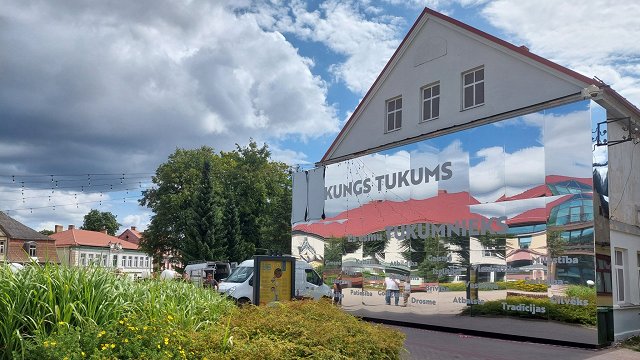Kaucminde manor is located only eight kilometers from the the magnificent and fully restored Rundāle palace, one of Latvia's major tourist attractions. This part of the country has numerous notable palaces, castles and manor houses. Once among the grandest of them all, Kaucminde is now among the most decrepit, its elegant 18th century features reduced to a crumbling wreckage.
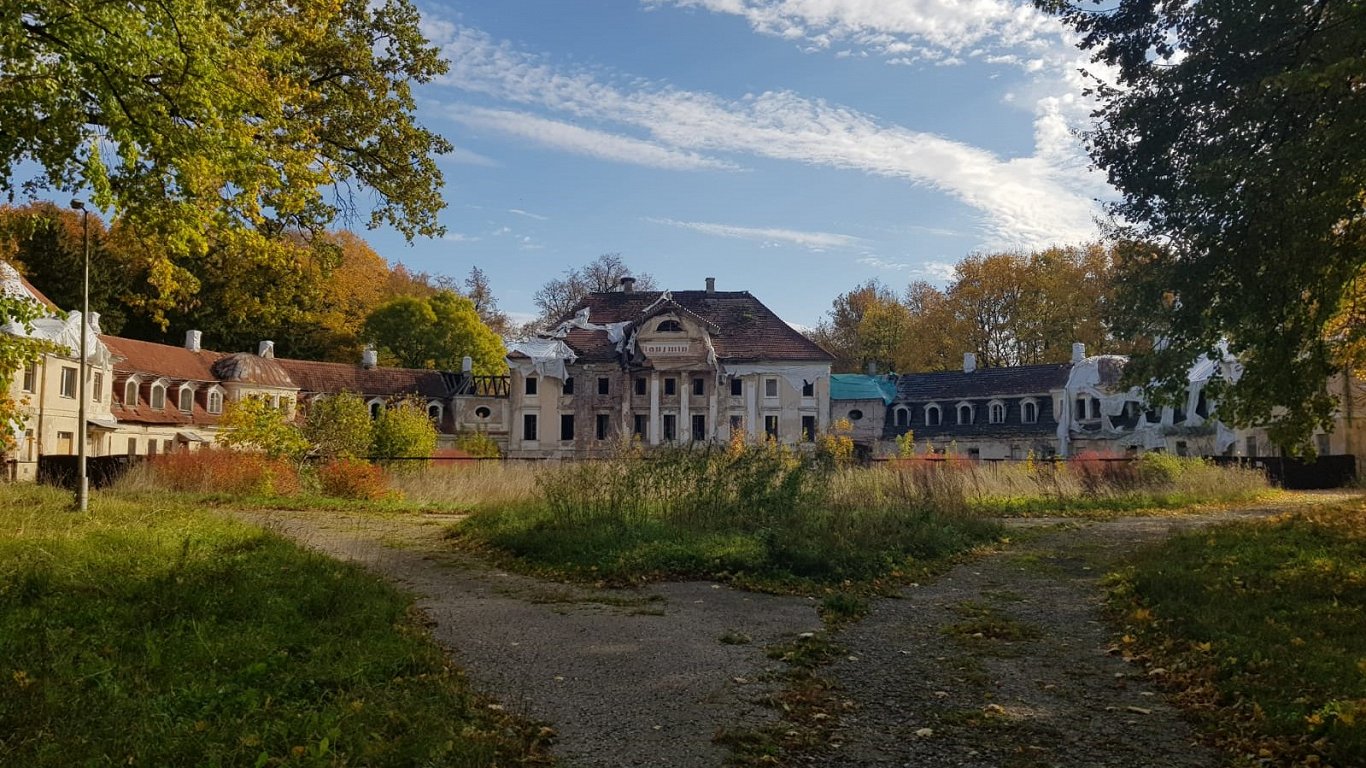
Kaucminde manor was built in the late 18th century in the style of early classicism. Until 1920, it was owned by the family of Count Peter von der Pahlen. Then it was handed over to the newly established Kaucminde housekeeping seminary, where the daughters of the wealthiest Latvian landowners studied. In 1944, the building was taken over by Saulaine Agricultural Technical School and remained an agricultural school through the 1960s before its decline and abandonment started.
From the restoration of Latvian independence until the beginning of the 21st century, the manor was the property of Rundāle municipality. Since 1998 it has been listed as an important national cultural monument.
According to Aivars Okmanis, the long-term chairman of Rundāle district council, the municipality had insufficient resources to take proper care of the sprawling property and so it passed into private ownership.
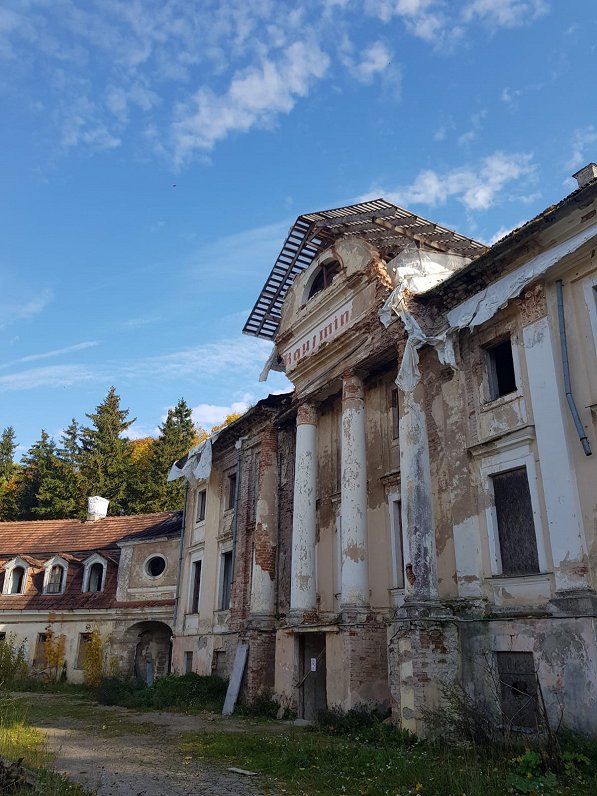
"The municipality did not have such opportunities as now. At that time there was a parish and there were no European funds. We had not even joined the European Union yet, and there was no option at all to maintain the manor. We had a kindergarten inside. We found a private person who undertook to maintain and restore everything,” explained Okmanis.
However, in almost 15 years of private ownership the manor did not experience any significant improvements. Then in 2016, it was acquired by its current owner, a legal services company named "Cvir". According to publicly available data, Cvir currently has tax debts of nearly 20,000 euros.
Although a preservation project has already been developed and submitted to the construction board, at the Kaucminde manor itself there is little evidence to suggest any care is being taken of the buildings other than many 'Keep out' signs which have recently apepared. Two fines imposed by the National Heritage Board on Cvir are yet to be paid, as previously reported by LSM.
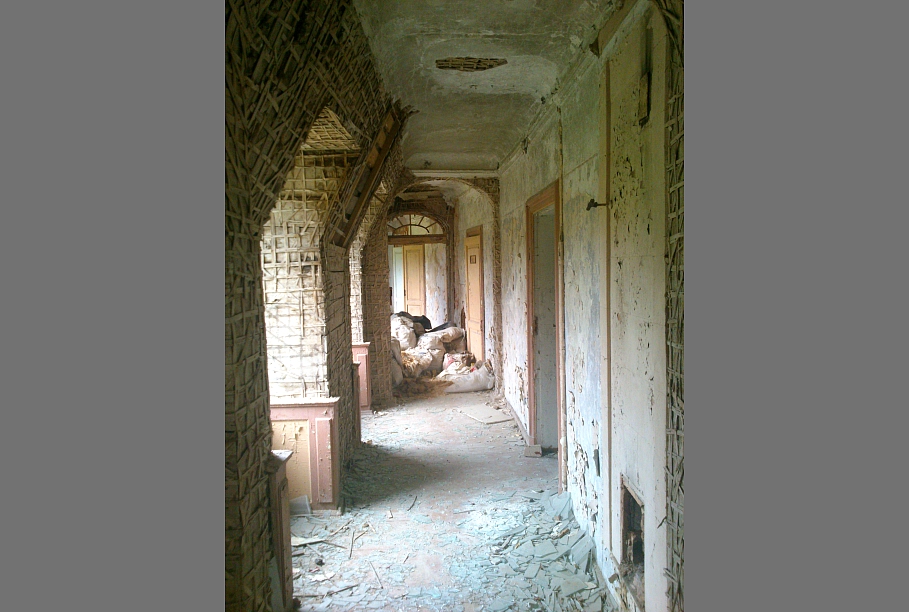
In October of this year, the manor was inspected by architect Artūrs Lapiņš, who said it has only been saved from complete collapse by works carried out with state support to strengthen the elaborate portico at the front of the main building.
"The current situation is that everything there is relatively stable, but the portico absorbs moisture. It is necessary to build a structure that protects from rain, from snow. The cold weather is coming, and it can definitely cause significant damage to the portico, something can collapse down there. At the moment, nothing falls on your head, but it must be saved immediately,” Lapiņš said.
Roberts Līgers, a member of the board of Cvir, insisted restoration work would get under way soon.
“We anticipate that we are entering into an agreement with the contractor this week on the performance of these works, in line with the National Heritage Board. We are confident that the bulk of this restoration work will be carried out this building season," he said.
However, others are skeptical, particularly given the fact that similar reassuraces were made back in 2017, as reported by LTV's Kulturšoks show.
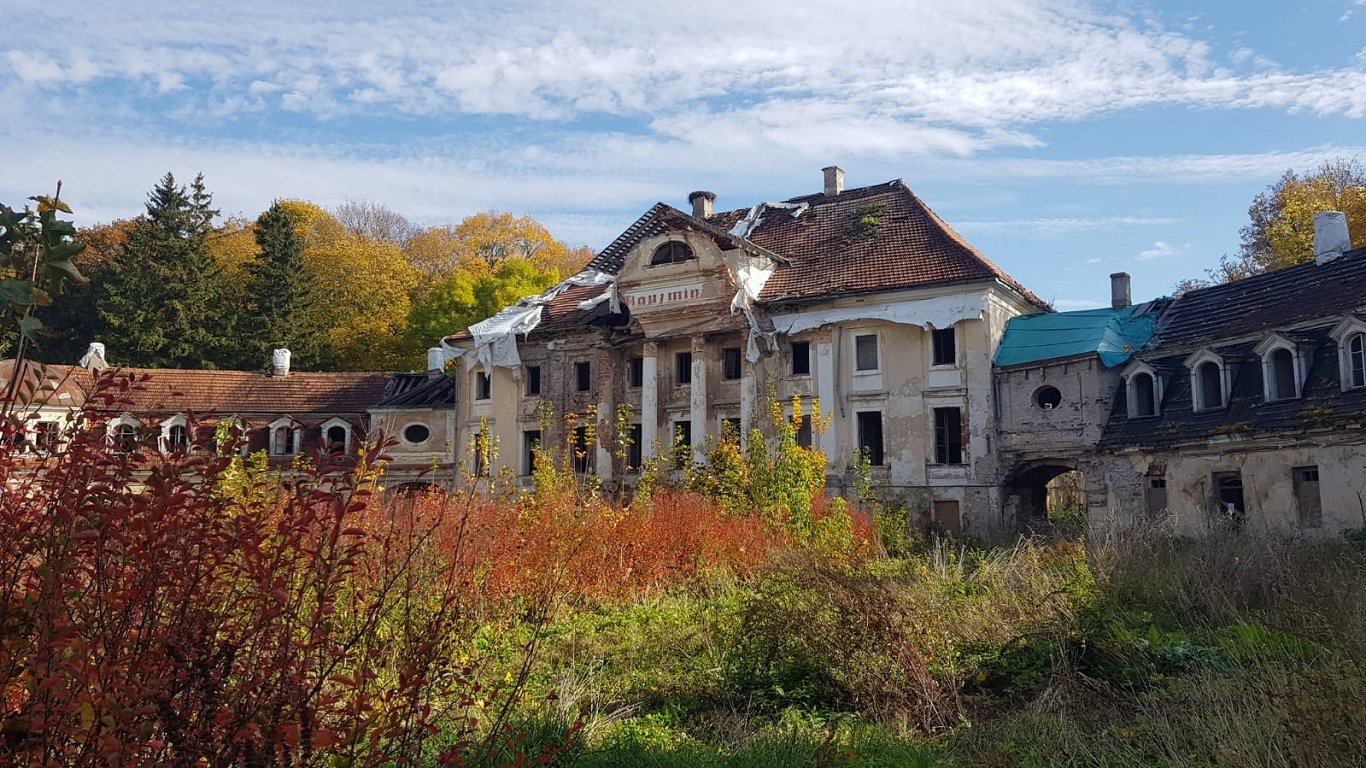
Elvīra Mantrova, the head of the Zemgale regional branch of the National Cultural Heritage Board, is among those doubtful that Kaucminde will rise from its rubble any time soon given Cvir's debts and failure to pay its fines.
"You know, if you believe only in words, you feel very hopeful, but if everything is judged by deeds, then there is no faith at all," she said.
The law stipulates that the palace can in theory be expropriated to save it as a significant part of Latvia's cultural heritage. however, Elvīra Mantrova does not believe that Kaucminde should be restored only at taxpayers' expense and hopes Kaucminde's ancient fame can be restored by attracting a reputable and well-financed private investor.







